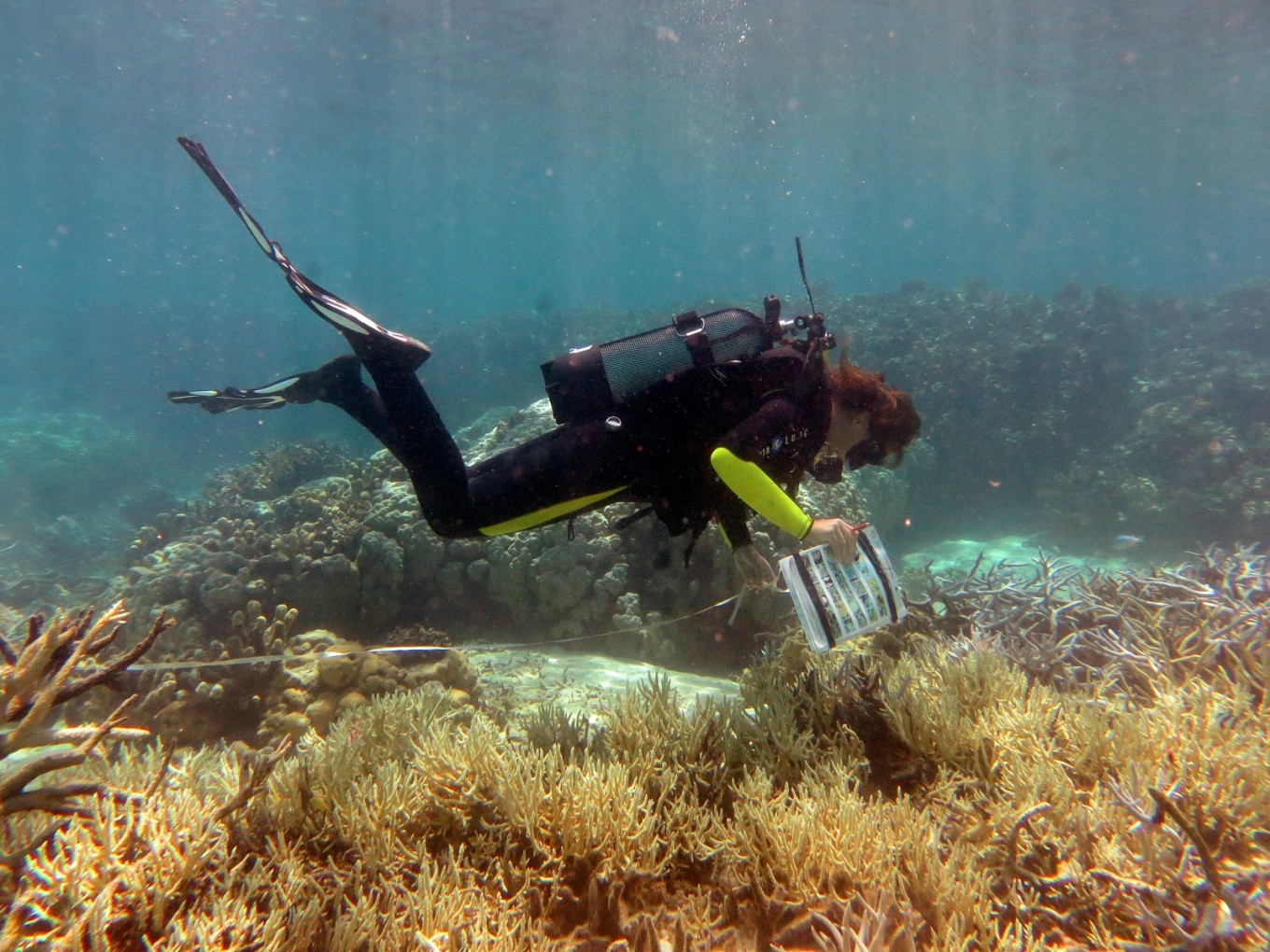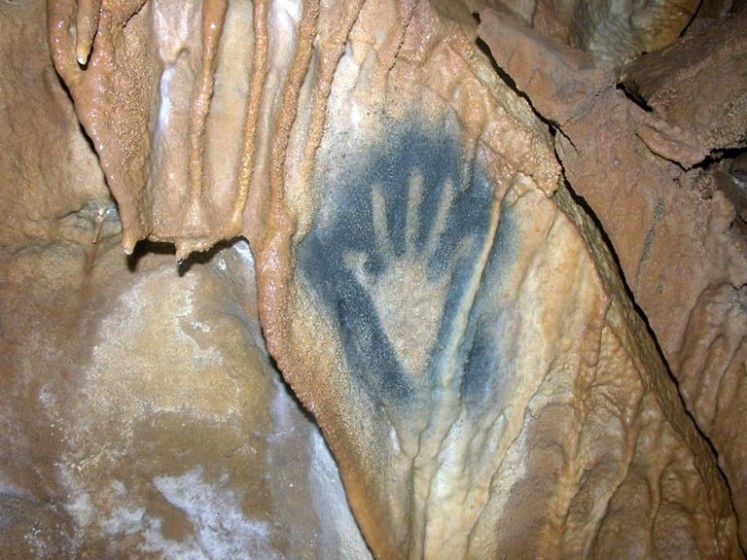Popular Reads
Top Results
Can't find what you're looking for?
View all search resultsPopular Reads
Top Results
Can't find what you're looking for?
View all search resultsGlobal coral bleaching may be ending, US agency says
Change text size
Gift Premium Articles
to Anyone
 A handout photo released by Pala Dalik on September 19, 2016 shows a scientist accessing the coral reefs, part of the UNESCO-listed World Heritage Area, off New Caledonia in the south Pacific. Scientists believe that an unprecedented episode of coral bleaching this year between mid-February and May has slowed down with coral reefs partially regenerating, although the reefs remain under the supervision. (Pala Dalik/AFP/Sandrine Job)
A handout photo released by Pala Dalik on September 19, 2016 shows a scientist accessing the coral reefs, part of the UNESCO-listed World Heritage Area, off New Caledonia in the south Pacific. Scientists believe that an unprecedented episode of coral bleaching this year between mid-February and May has slowed down with coral reefs partially regenerating, although the reefs remain under the supervision. (Pala Dalik/AFP/Sandrine Job)
C
oral reef bleaching may be easing after three years of high ocean temperatures, the longest such period since the 1980s, the National Oceanic and Atmospheric Administration said Monday.
Its experts said satellite data and other analysis showed widespread bleaching was no longer occurring in all three ocean basins -- Atlantic, Pacific and Indian -- "indicating a likely end to the global bleaching event."
Scientists from the NOAA, an agency of the US Department of Commerce, said they will closely monitor sea surface temperatures and bleaching "over the next six months to confirm the event's end."
Since 2015, all tropical coral reefs have seen above-normal temperatures, and more than 70 percent experienced prolonged high temperatures that can cause bleaching.
US coral reefs were hit hardest, with two years of severe bleaching in Florida and Hawaii, three in the Mariana Islands, and four in Guam, according to the NOAA.
Read also: Great Barrier Reef bleaching worse than first thought
"This global coral bleaching event has been the most widespread, longest and perhaps the most damaging on record," said Mark Eakin, the NOAA's Coral Reef Watch coordinator.
Healthy coral reefs protect shores from storms and offer habitats for fish and other marine life, including ecologically and economically important species.
However, after corals die, reefs quickly degrade and the structures that corals build erode. While corals can recover from mild bleaching, severe or long-term bleaching is often lethal, experts say.
Early in 2017, the rise in water temperature caused significant bleaching in the Great Barrier Reef in Australia for the second consecutive year and also in American Samoa, which was severely affected in 2015.










